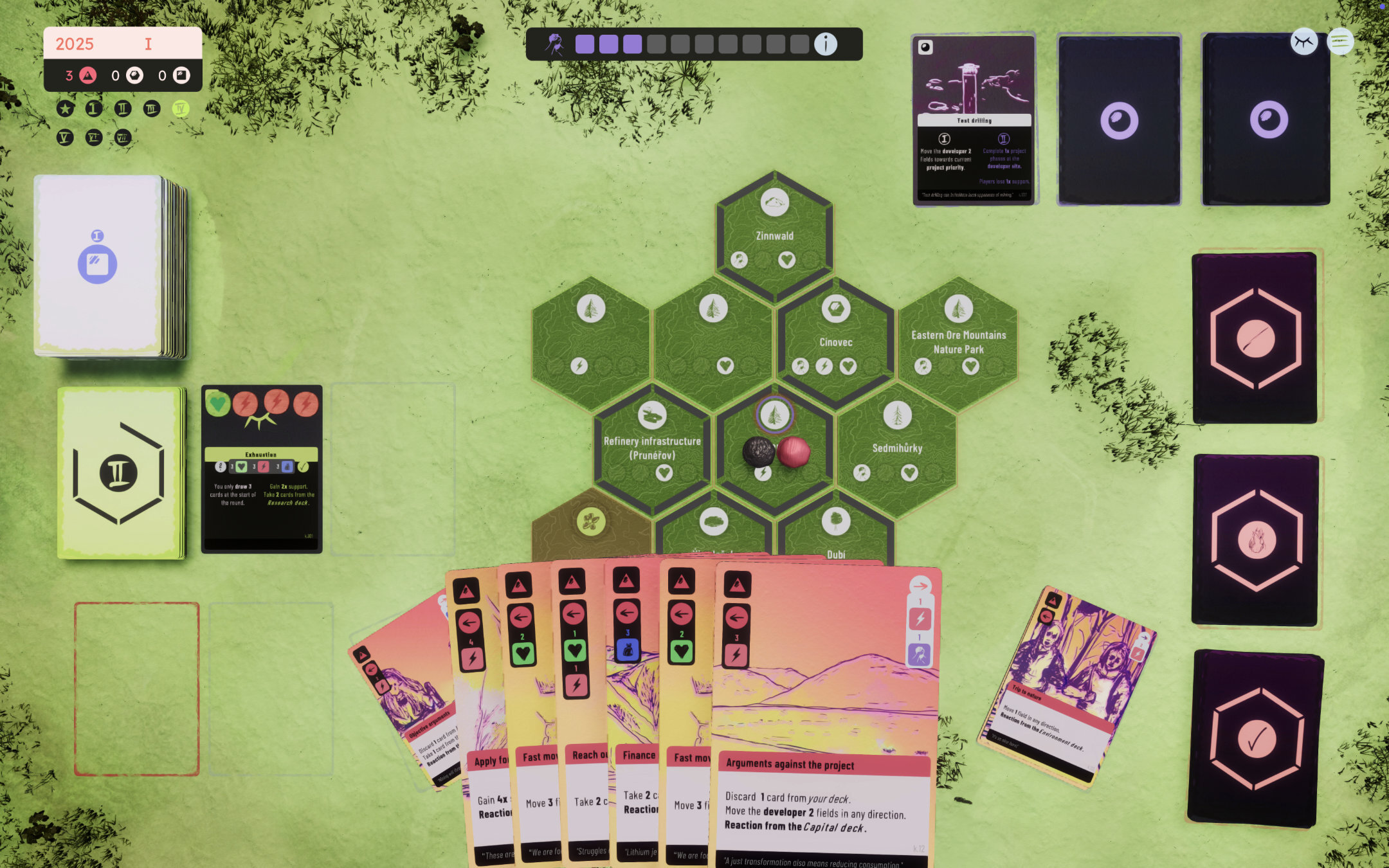Lithium focuses on the possibilities of mobilizing local residents to defend their landscapes from lithium mining, building on an original game mechanic working with decentering player agency in the game world. The game mechanics motivate players to build a coalition with the local population that has the possibility to innovate democratic decision-making from below.
The game includes conversations on related topics with local actors and experts on lithium mining in relation to renewable energy and the environmental impacts of mining. In conjunction with the Symptoms of the Future exhibition, the game asks whether lithium mining is a solution to the climate crisis.

What is Lithium about?
In Lithium, you take on the role of one of three social groups - activists, locals, or the town - trying to oppose a lithium mining project in Cínovec, Czech Republic. The developer of the project is pushing for a quick start with major environmental and social impacts, while you, as part of a collective of mining opposition, have other plans for sustainability and environmental protection. Can you find a way to slow things down and spark a debate about a fair and sustainable solution?
Will you hold up the project through a citizens' initiative-or will you bring social groups together and organize a forum for public discussion about the environmental impacts of the project?
Action and Consequences - Every step affects public opinion, the economy and the environment, leading to complex and dynamic responses.
Collaboration is key - Network with others to build alliances and gain support.
Climate Justice and Democracy Ecogame
Lithium is an eco-game that seeks to engage meaningfully with the climate crisis and the fight for the environment. It doesn't just simulate resistance to resource extraction; it challenges players to think about what a just energy transition might look like in the face of the climate crisis. In addition, Lithium invites players to engage in democratic decision-making. The game explores how communities come together to shape their own futures, opening up space for democratic imagination. Can local resistance spark broader discussions about sustainability? Can deliberative processes lead to global policy change?
